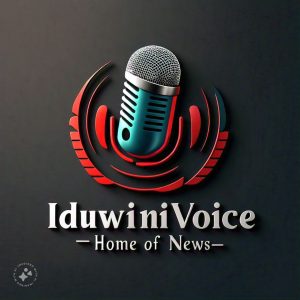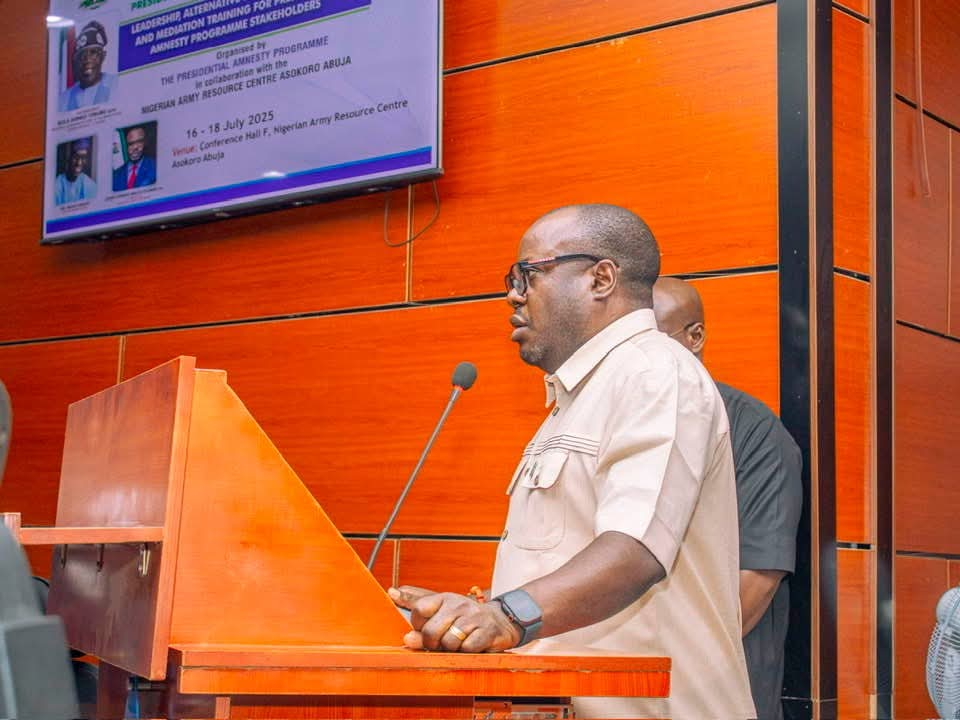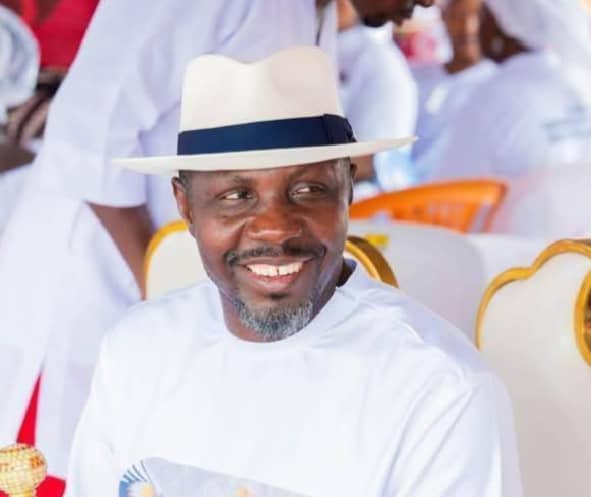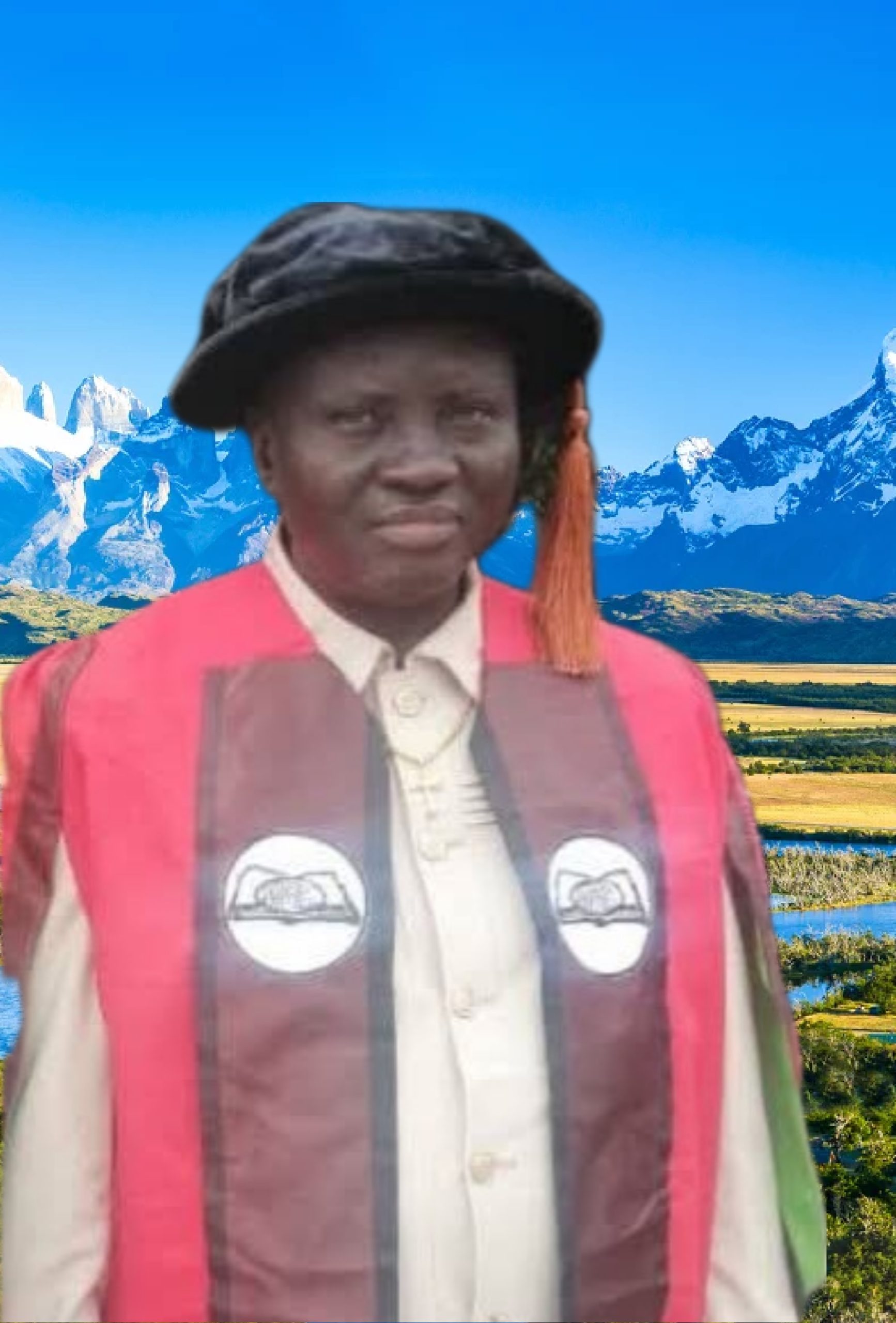Columns
WHEN NIGERIA’S DEMOCRACY WILL DIE

WHEN NIGERIA’S DEMOCRACY WILL DIE 
By Emmanuel Aziken
What may remain etched in the memory of many people following last weekend’s governorship election in Edo State may be the picture of Governor Godwin Obaseki sitting down in the wee hours of Sunday on the corridor of the collation centre of the Independent National Electoral Commission, INEC in Benin City all alone.
Video images showed him handling his phone apparently trying to send messages to someone. Following that, he was shown being marched away from the commission’s office following an abortive move to protest what he alleged as the manipulation of figures from the election that held the day before.
The governor cut a sorry picture of a man helpless as the forces of state overwhelmed him. The governor and his favoured party have alleged that their agents were locked out of the collation centre during which they claimed figures were manipulated to declare contrary results as cast by voters.
What goes around actually comes around. Exactly eight years ago, Obaseki as the candidate of the All Progressives Congress, APC was reportedly the beneficiary of the same manipulation.
At that time in 2016, following the election on September 28, 2016, in the wee hours of the following day, enablers of the ruling party in the state were alleged to have shut out the opposition and done whatever they did and Obaseki was the following day announced as the winner of the election.
The developments in Edo in the last week have inevitably brought out warning signals of serious threats to Nigeria’s democracy with the most ominous menace being the collation centre.
The most significant oddity in Edo last weekend was the fact that collation was aborted in some local government areas and relocated to the State headquarters of INEC where oppositionists claim they were refused entry.
That was a fundamental breach of INEC procedures and guidelines which the commission’s officials remarkably failed to address. Why was the scheduled venue for the collation changed? As with the commission’s willful refusal to use the IREV portal in the 2023 presidential election, INEC has again failed to give any logical explanation for the decision not to abide by its guidelines on the collation of results.
The controversy around the collation of the results in Edo again brings to fore the long-held belief that collation centres are the axis of evil in Nigeria’s electoral process.
The brazen disruption and disregard of the laid down rules for collation of election results as we now know are helped by corrupt INEC officials working in cahoots with security agencies.
In Edo, it was reported that a high- ranking police officer masterminded the relocation of the collation centres from at least two local government areas to the INEC headquarters.
Expectedly, no one has been questioned as to why this was done. INEC that should ordinarily defend the integrity of its systems and procedures has been lame to respond.
It is suffice to say that the brash disregard of the electoral process was not countermanded by superior authorities of the commission which under the laws should have reviewed the process to allow a fair assessment of the complaints.
It is remarkable that many of the observer groups including YIAGA Africa were ferocious in their condemnations of the processes that took place in Edo State last weekend.
As some now say what you need to win an election in Nigeria is to have sufficient money to bribe INEC, and security officials and you are on course to being declared winner of the election. The next step is to use state resources to defend the election in the judiciary.
It is perhaps against this background that the review of the Edo election by Prof Sam Amadi, director of the Abuja School of Political and Social Thought comes to mind.
In his now viral conference, Prof Amadi lamented that the continued progression in error by the Nigerian state towards manipulative elections could sooner than thought destroy the country’s democracy.
Amadi was on spot in pointing out the dangers in allowing INEC as it is to carry on the game of elections without fundamental reforms. The appointment of persons into the electoral management body as embodied in the positioning of clearly partisan aides of political actors is one of the most visible dangers of the present setup.
No one would believe that the former aides of political actors would conduct elections that would not be susceptible to malpractices.
What Prof Amadi recommends and which your correspondent fully adopts is to implement the recommendations of the Justice Mohammed Uwais panel instituted by President Umaru Yar‘adua.
It is a pity that President Goodluck Jonathan failed to implement the recommendations of that committee.
It will be foolhardy for anyone to expect President Bola Tinubu to implement this prescription.
Political actors including opposition leaders must put pressure on the National Assembly to push through the recommendations. If Atiku Abubakar, Peter Obi, and other 2027 gladiators are really keen on keeping Nigeria’s democracy they should bring pressure on their members in the National Assembly to go in the direction of the Uwais report.
They can move in this direction quickly given the fact that the APC at the inauguration of the present House of Representatives was a minority. Given the issues and apprehension in the land, it is possible to get a sufficient number of lawmakers from the APC to move in this direction and perhaps save Nigeria’s democracy.
If not, Nigeria’s democracy may die sooner than we can imagine.
Columns
Chief Denis Otuaro, the Guiding Star of PAP

By: Professor Binebai
The Niger Delta has found a beacon of hope in Chief Dr. Dennis Otuaro, a leader of unimpeachable integrity, courage, and vision. As the helm of the Presidential Amnesty Programme (PAP), he has emerged as a champion of transformation, inspiring a region and a nation with his unwavering commitment to empowerment and progress.
In the realm of Nigerian leadership, there are those who leave an indelible mark on the sands of time, and Chief Dr. Dennis Otuaro is one such luminary. As the helm of the Presidential Amnesty Programme (PAP), he has etched a narrative of hope, redemption, and triumph, illuminating the path for the people of the Niger Delta. This tribute is a celebration of his extraordinary leadership, vision, and unwavering commitment to the cause of empowering the youths and transforming the region.
Chief Denis Otuaro’s stewardship of the Presidential Amnesty Programme (PAP) has indeed been a renaissance, a majestic sunrise after a long, dark night, as he infuses the initiative with the radiance of a new dawn.
Like the mythical Anansi, the wise and cunning spider of West African folklore, Otuaro’s leadership has woven an intricate web of hope and opportunity, capturing the challenges of the Niger Delta and transforming them into a rich mosaic of promise and progress. His vision, akin to that of the venerable Oracle of Delphi, has deciphered the complexities of post-conflict reconstruction, guiding the demobilised youths through the labyrinth of uncertainty, and into the bright light of empowerment and redemption.
Otuaro’s journey has been sustained by a resolute commitment to the cause, his leadership style a masterful blend of courage, wisdom, and compassion. His tenure has been marked by a symphony of progress, as the PAP, under his guidance, has orchestrated a harmonious balance of pacifism and pragmatism, transforming the region into a veritable Garden of Eden.
Like Athena, the Greek goddess of wisdom, Otuaro wields the power of transformation, his touch turning the arid landscape of despair into a lush oasis of hope and prosperity. His leadership has become a byword for sagacity, a testament to the transformative power of vision, courage, and compassion.
In the pantheon of Nigerian leaders, Otuaro’s name shall be etched alongside the greats, his legacy a shining testament to the indomitable human spirit, as he continues to weave a new narrative of hope, redemption, and triumph for the people of the Niger Delta.
The Niger Delta has found a leader of repute, a leader of courage, a leader of transformation, a leader of goodwill in the PAP. Let egocentric economic buccaneers and demonic agencies stop their campaign of calumny against this leader of glory.
To those who seek to undermine his efforts, we say: let envy and malice be silenced! Let the progress of the Niger Delta be the benchmark for greatness! Let Otuaro’s leadership be the inspiration for a new generation of leaders!
Columns
A Legendary Legacy: The Enduring Odyssey of High Chief (Dr.) Government Oweizide Ekpemupolo

By: Professor Ben Binebai
In the realm of Nigerian leadership, one name resonates with mythical significance – High Chief (Dr.) Government Oweizide Ekpemupolo, affectionately known as Tompolo. Born on 12 April 1971, in Warri, Delta State, Tompolo has etched his name in the annals of history, leaving an indelible mark on the Niger Delta region. As a former militant commander of the Movement for the Emancipation of the Niger Delta (MEND) and chief priest of the Egbesu deity, he has navigated the treacherous waters of war and peace, leveraging his remarkable journey to bring succour and development to his people.
Tompolo’s metamorphosis from a militant leader to a peace advocate is a testament to his unwavering commitment to the progress of the Niger Delta. His decision to embrace the Amnesty Programme in 2009 marked a turning point, as he laid down arms and picked up the mantle of transformation. Today, he is revered as a hero, celebrated for taming the turbulent waters of the Creek boys and settling major political crises in the region. By putting the Ijaw image on the Nigerian map, Tompolo has redefined the narrative, showcasing the rich cultural heritage and resilience of the Ijaw people to the world.
A nationalist and statesman emerging from the boiling pot of agitation in the Niger Delta, Tompolo has consistently demonstrated his commitment to the development and progress of his people. His agency operates in close collaboration with the government, working tirelessly to implement projects and initiatives that benefit the Niger Delta region. His leadership style is characterised by quiet strength, strategic thinking, and an unwavering commitment to the progress of his people. His efforts have earned him recognition and accolades from various quarters, solidifying his position as a dependable pillar of the Ijaw nation.
As the last voice of the Ijaw nation, Tompolo’s legacy continues to inspire hope and progress for generations to come. With institutions established for national economic stability and prosperity, his impact will be felt for years to come. Tompolo’s story serves as a beacon of hope and resilience, inspiring his people to strive for greatness.
God bless this emergent leader of the Ijaw nation.
Columns
YOUNA: WARRI CRIES FOR PEACE AND JUJUSTICE

By: Ben Binebai
In the Niger Delta region of Nigeria, a city cries out for peace, justice, and unity. Warri, a land of rich cultural heritage and economic significance, has been plagued by recurring crises, sparked by provocative actions and claims of ownership by the Itsekiri group. The cry of Warri is a call to action, a reminder that our diversity is a strength, not a weakness, and that our common humanity is worth fighting for.
The Ijaw, Urhobo, and Itsekiri communities have coexisted in Warri for centuries, sharing a rich cultural heritage and a deep connection to the land. Occasionally uniting but deeply disunited because power and hegemony have often overshadowed their shared humanity, the people of Warri yearn for a future where their differences are celebrated, and their commonalities are the foundation of their unity. Warri’s significance extends beyond its current boundaries, as it has been a hub of economic and cultural activity for centuries. Before 1952, Warri was a thriving commercial centre, with the Ijaw, Urhobo, and Itsekiri communities contributing to its growth and development.
The city’s strategic location and access to the Niger Delta’s vast resources made it an attractive location for trade and commerce. Understanding Warri’s rich history and cultural heritage is essential to finding a lasting solution to the crisis.
It is time for truth to prevail to offer a lasting solution to the Warri crisis. The canoe of godfatherism should be withdrawn for the rule of law and for peace and progress to triumph.
The lie of exclusive ownership of Warri resists termination due to several factors, including:
Outdated court judgments: The Itsekiri establishment continues to rely on outdated court judgments, such as the 1925 judgment, to support their claim of ownership, despite subsequent judgments repudiating its validity.
Lack of political will: Successive governments have failed to address the problem and take the right and just decision, allowing the crisis to persist.
Absolutist claims: The Itsekiri claim is absolutist, while the Urhobo and Ijaw claims are limited, recognising ownership of portions of Warri by other communities.
Historical narratives can be deeply ingrained*: People’s understanding of their history and identity can be shaped by long-standing narratives, making it hard to change their perspectives.
Emotions and biases can override facts: When emotions and biases are strongly tied to a particular narrative, people may resist changing their views, even in the face of contradictory evidence.
Power dynamics can influence narrative control: Those in positions of power may use their influence to shape and maintain certain narratives, making it harder to correct lies and misconceptions.
Moreover, leadership plays a crucial role in shaping the future of Warri. As the saying goes, “When leaders refuse to embrace sacrifice, society dies.” Leaders who prioritise the greater good, make tough decisions, and invest in the future can help build a more harmonious and prosperous society. It is time for the leaders of Warri to put the needs of their people first and work towards a brighter future.
The cry of Warri is a call to action, a reminder that our diversity is a strength, not a weakness. Let us work towards a brighter, more harmonious future, where the beauty of our differences is celebrated, and our common humanity is cherished. May the cry of Warri be heard, and may we rise to the challenge of building a better tomorrow for all its people.
